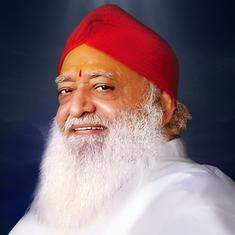Rajya Sabha passes all four GST Bills
Finance Minister Arun Jaitley had said during the debate that the legislations were a collective effort of political parties and central and state governments.

The Rajya Sabha on Thursday passed all four Bills related to the Goods and Services Tax – the Central Goods and Service Tax Bill, Union Territory GST Bill, Integrated GST Bill and the Compensation Law Bill.
Finance Minister Arun Jaitley had said, during the debate, that there was no hesitation in the government in conceding that the Bill could not be credited to just one person. “It is a collective property in which political parties as well as central and state governments had all contributed,” he had said.
At one point in the debate in the Upper House, former Prime Minister Manmohan Singh had intervened and urged fellow Congress leaders not to push for amendments in the GST Bills “for the sake of consensus”.
The Rajya Sabha’s approval now paves the way for the Centre to implement the new tax regime by the July 1 deadline it had set.
The four slabs in the GST are 5%, 12%, 18% and 28%. The government has set the maximum GST rate at 40% and introduced provisions for an anti-profiteering authority and arrests for evading taxes.
The Bills were passed in the Lok Sabha on March 29 after Jaitley had tabled them Bill in the Lower House on March 27, hoping to have them passed with consensus in Parliament during the ongoing Budget Session. “States have pooled in their sovereignty into the GST Council, and the Centre has done the same. The council held 12 meetings to make it a process based on consensus and recommendations,” Jaitley said in the Lok Sabha.
President Pranab Mukherjee had approved the Bills on September 8, 2016, after it was ratified by 16 states. The GST, which seeks to overhaul India’s complicated taxing system by replacing 17 different taxes with a single levy, was passed by the Rajya Sabha on August 3. The Union Cabinet had approved the Bills on March 20.









